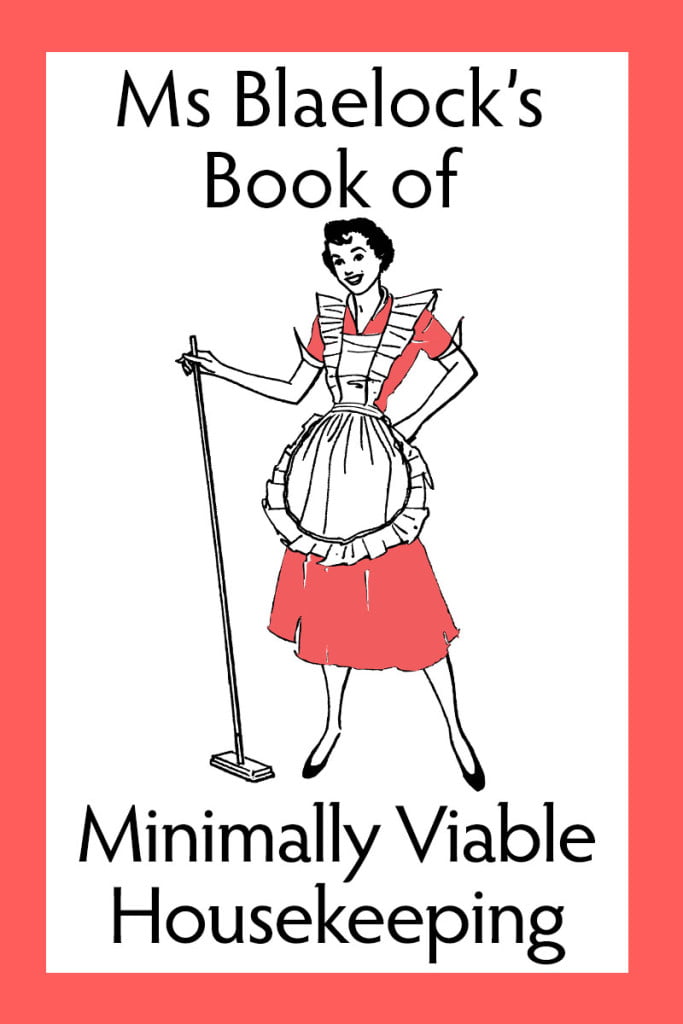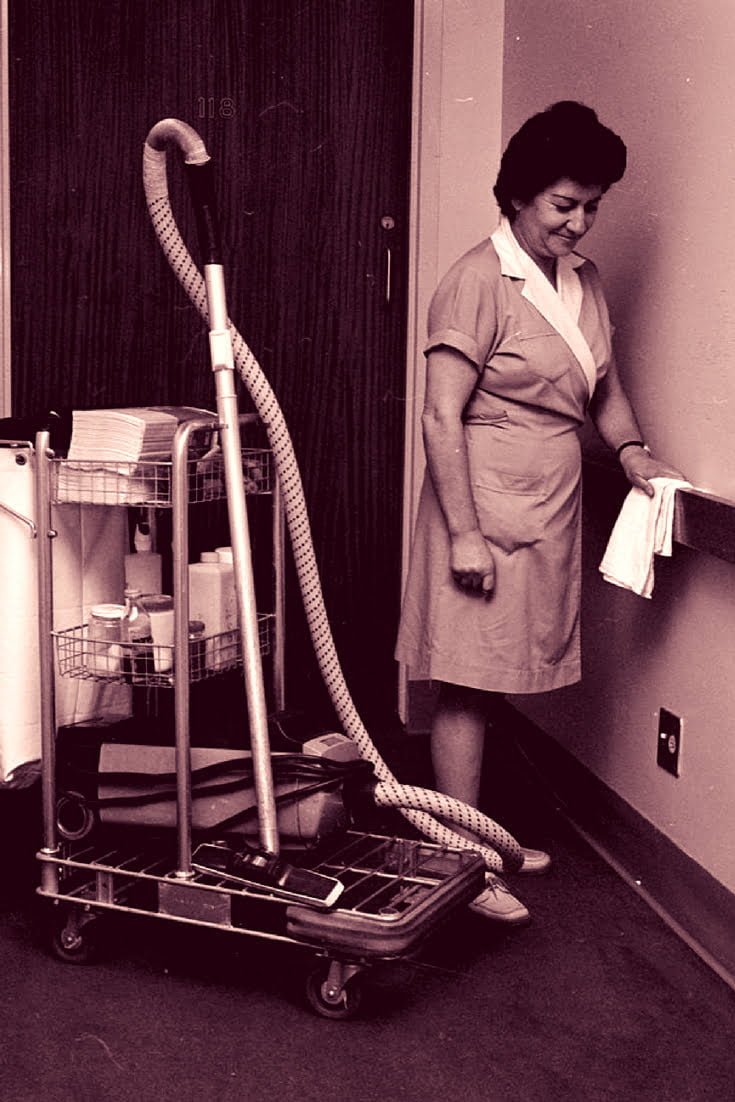Work on my new book Minimally Viable Housekeeping is steaming along – I’ve finished the first draft! There’s still work to go on the second draft, but I’m feeling a little smug. But as you might expect, the more involved I am in this project, the less I am in my actual housekeeping. And while DB might disagree, I think that I’m a little more on top of it than when I was writing Holistic Personal Finance. Because in the meantime, I’ve developed some housekeeping habits.
Though what housekeeping is remains an online mystery. Depending on whose site you look at it, it’s either cleaning, tidying, or organising. Or whether a moral imperative is implicit or not.
While I think there’s a logical underpinning for keeping house (health and happiness), I don’t take it as being a matter of morals (right v wrong or good v evil). And this lack of housekeeping morality is what permits me to contemplate minimally viable housekeeping. Calling it minimally viable doesn’t mean that I don’t think it’s important – I think it’s as important as a minimally viable income. And if you have to keep a roof over your head, I expect you’ll believe a minimally viable income is important too!
But I do think that housekeeping is more than cleaning, tidying or organising. Cleanliness is the absence of dirt (healthy), tidiness is keeping things neat and in order (useful for safety), and organisation relates to the systematic arrangements (helpful when you’re looking for something). It’s actually your system that holds it all together.
And that’s the point where your daily routines and habits pull the whole thing together.
As my mother used to say:
A place for everything, and everything in its place.
Not that I paid her any attention at the time.
Daily Housekeeping Habits and Routines
According to Charles Duhigg, a habit consists of a cue, an activity, and a reward. To use his example of cleaning your teeth; your cue is furry teeth, you load up your toothbrush with paste and get scrubbing and are rewarded with a mouthful of froth and a fresh minty mouth clean feeling.
You can change existing and create new habits as long as you work within your current habit framework. You can start with one habit, and create a chain of habits – also known as a routine. For example, flossing before you brush and using interdental brushes after.
There are four main rooms you use every day, and your morning and evening routines in these rooms will shorten your weekly chore list. Though it has to be said, that you also need to encourage the other people in your home to create these habits too rather than relying on you to take care of everything.
Housekeeping Habits in the Bedroom
When you get home from work, put your shoes away, hang up your clothes or throw them in your washing basket (not the floor). The reward will be the magical appearance of clean clothes in the appropriate places. Assuming that you don’t cave and pick up everyone else’s clothing.
In the morning, make your bed, or if you’re an airer, fold back the covers when you get out of it. It will look nice and neat, and you will have accomplished something.
When you get dressed, put away the clothes, shoes, and accessories you tried on but aren’t wearing.
Bathroom
I’m not saying that you should clean your shower every day just before you get out of it. I don’t think that’s necessary or minimal, and I am slightly concerned about spraying cleaning chemicals about when you’re not wearing protective clothing, and your ventilation is potentially inadequate.
But you could hang your towels on the rails instead of the floor. And you could put your deodorant back in the same place every day. And maybe you could only leave the things you use every day out in the open.
Kitchen
Habitually keeping your kitchen counters clean by putting tools and ingredients away and wiping up spills makes a great difference to your state of mind as well as your home’s appearance.
When you make dinner, wash your cookware as you go and stack your dishwasher when you finish eating, ready to go on before bed. I think that after dinner is also the best time to empty the household rubbish into your outside waste receptacle. You’ll appreciate that when you come to make coffee in the morning.
In the morning, while you wait for your coffee, you can empty the dishwasher. Perhaps while you wait for the second cup, you can start preparing your breakfast and lunches. Wash the cookware as you go and stack the dishwasher when you’ve finished eating.
Lounge/Family Room
Many of us finish up the day with drinks and snacks in front of the tv. And often, you’re so tired you just go to bed leaving cups and glasses and dishes, and food wrappers were you dropped them. Even though there’s a good chance you’ll be walking right past the kitchen on your way to bed. Why not go one step further and put your rubbish in the bin and dishes in the washer (don’t forget to turn it on).
The Not Minimal Bit
These habits will get you through the week with a clean and tidy home, but at some point, you do need to clean the bathroom and wash the clothes. Though these can be set into a larger sequence of weekly routines.
And it’s worth thinking about the bigger picture as well; how things like ergonomics, and standard practices can shave time and effort off them too.
Professional Housekeeping Habits, 1970. Photo by Anthony Teave from the Dennis Mayor collection of Photographs, State Library of Victoria
For more interesting and useful infomation, check out my housekeeping page.
Minimally Viable Housekeeping
When you’re busy, taking care of your home takes too much time and energy, leaving you tired and discontented at the end of the day.
Minimally Viable Housekeeping translates business effectiveness and efficiency techniques for the home. So you can spend more time doing the things that make life worth living.
Discover how to minimise the time and effort you spend on housekeeping. Buy now:


